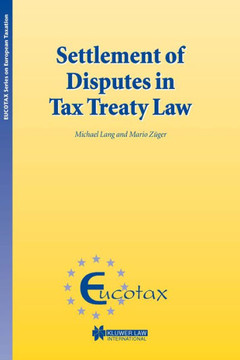
Eucotax Series on European Tax
The Impact of Tax Treaties and EU Law on Group Taxation Regimes
Product Code:
9789041169051
ISBN13:
9789041169051
Condition:
New
$270.44

The Impact of Tax Treaties and EU Law on Group Taxation Regimes
$270.44
The existence of tax groups is motivated by the principle of neutrality in the taxation of corporate activities: tax systems should tax the income in the same way irrespective of the organic structure adopted for that purpose. This means that a tax system should not lead to distortions only because such activity was not performed by a single company but rather through a group of companies. Tax group regimes exist in many Member States although most of them are applicable only to domestic companies. Therefore, the possibilities of cross-border group taxation are still very limited at the EU Level. The limitation of tax group benefits to domestic situations and the difference in treatment between domestic and cross-border constitute situations which may affect neutrality and therefore, create obstacles as to an efficient allocation of resources. This thesis analyses how tax treaties and EU law may contribute to remove existing obstacles to group taxation regimes, meaning the differences created by national laws between domestic and cross-border groups. This assessment is fundamentally based on the interpretation of the non-discrimination provisions in tax treaties as well as the EU fundamental freedoms. It also considers the possibility of developing new approaches based on the interpretation of tax treaties and EU law such as to extend the application of group taxation regimes to cross-border situations.--Samenvatting auteur.
| Author: Bruno da Silva |
| Publisher: Eucotax Series on European Tax |
| Publication Date: Aug 26, 2016 |
| Number of Pages: 648 pages |
| Language: English |
| Binding: Hardcover |
| ISBN-10: 9041169059 |
| ISBN-13: 9789041169051 |





